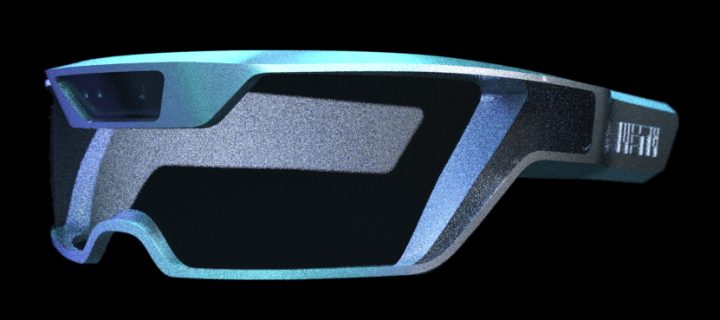Meta is a successful Kickstarter project that claims to be making “the most advanced augmented reality glasses.” Now that the Kickstarter is over, the glasses have become available for pre-order directly through the Meta website. The unit is expected to be delivered starting in November 2013.
The Meta Kickstarter ran its course for 30 days, between May 17th and June 16th. The Kickstarter campaign nearly doubled their goal, finishing at $194,444.
Now that the Kickstarter has ended, Meta is now offering direct pre-ordering of the Meta 01 developer kit through their website for $667. According to the company, the glasses combine a head-mounted depth camera with a see-through QHD display which uses beam-splitting technology:
- Twin 960×540 see through TFT LCD displays at 23 degrees Field of View, via HDMI
- 720p RGB camera via USB
- 320×240 Infrared Depth Camera via USB
- “9 degree” of freedom sensor (3-axis accelerometer, 3-axis gyroscope, 3-axis compass) via USB [quotes added by me]
The depth camera is used to captured the wearer’s hands as input, allowing them to manipulate on-screen content by reaching out and (visually) touching it. The company also says that the depth camera uses time-of-flight technology, similar to that found in the forthcoming Kinect 2.0, which is said to significantly reduce latency over other methods.
The company lists a few early augmented reality games and applications that they say will come with the Meta 01 developer kit:
- Chess
- 3D Sculpt+Print Tool, in partnership with Game Draw 3D
- Laser Tag
- Voxel Editor
- MetaCraft, a MineCraft simulator
The company recently released a new concept video for the Meta augmented reality glasses:
Meta differs substantially from Google Glass, the latter being more akin to ‘data glasses’ than augmented reality glasses.
While the Meta project looks a bit rough around the edges, the company has significantly bolstered their creditiblity by bringing on board Professor Steve Mann as their Chief Scientist and Professor Steve Feiner as their Lead Advisor. Both are highly respected in the fields of augmented reality and wearable computing.








